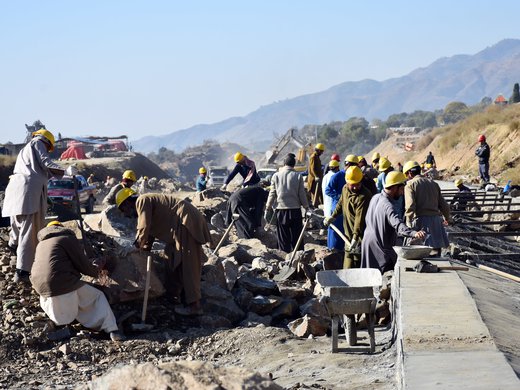That was the name of a panel discussion last Friday afternoon moderated by IMF Chief Economist Olivier Blanchard. It could have also been the title of a blog contribution, here, I posted earlier in the day. The timing of the panel discussion was propitious, coming just before the Greek elections that saw the Syriza party come to poet on a debt-reduction platform. International cooperation will be needed in the months ahead as uncertainty over the outcome of debt negotiations and the fate of the euro zone is likely to increase.
In his opening remarks, Blanchard reviewed the theoretical arguments for cooperation. The gains from cooperation, he said, come from the fact that, through cooperation, countries can achieve outcomes superior to the results that stem from individual maximizing behavior or Nash equilibria. That cooperation dominates uncooperative outcomes is the "folk theorem" of game theory: if it were not so, individual players could always "defect" to the non-cooperative equilibrium and do better.
There is no guarantee that cooperative agreements are always in the best interests of the public. OPEC is a cooperative agreement to limit production to raise prices and extract consumers’ surplus. And, as Adam Smith noted: “People of the same trade seldom meet together, even for merriment and diversion, but the conversation ends in a conspiracy against the public, or in some contrivance to raise prices.”
The thing is, cooperative agreements need institutional support. Absent some mechanism to monitor adherence to the agreement, the cooperative equilibrium is unlikely to be stable. The recent collapse of oil prices illustrates the point: it became increasingly difficult to maintain OPEC production quotas in the face of growing competition from non-OPEC members (think: fracking and shale oil production). An institution — let's call it, say, the IMF — is needed to provide the confidence that other members are adhering to the terms of the cooperative agreement, or "playing by the rules of the game."
In this respect, while other panelists made important points on the challenges of sustaining cooperation, former Fed chairman Paul Volcker stole the show. Drawing on the experience of the Bretton Woods system, Volcker argued that the simple rules of limited exchange rate adjustment and the escape clause exception of "in cases of fundamental disequilibrium" together with short-term balance of payments financing created an environment in which countries could pursue trade liberalization, full employment and gradual fiscal consolidation. In this respect, the “rules of the game” governing exchange rates were transparent and, in a sense, self-enforcing: members of the cooperative agreement could costly monitor whether other members were adhering to the agreement simply by observing the exchange rate at which central banks pegged against the U.S. dollar. The IMF provided a forum in which to discuss situations of fundamental disequilibrium, while it stood ready to assist its members strike the right balance between financing and adjustment. The problem, he said, is that those rules no longer apply; as a result, the IMF has become a "firehouse" dispatching crews to the periodic financial fires that sweep through the global economy to provide liquidity to douse the flames.
What is Volcker's prescription?
There is a need, he implied, to devise a new set of rules to assist members of the international community to pursue the adjustment they need to undertake at an acceptable political and social cost.
I couldn't agree more.


